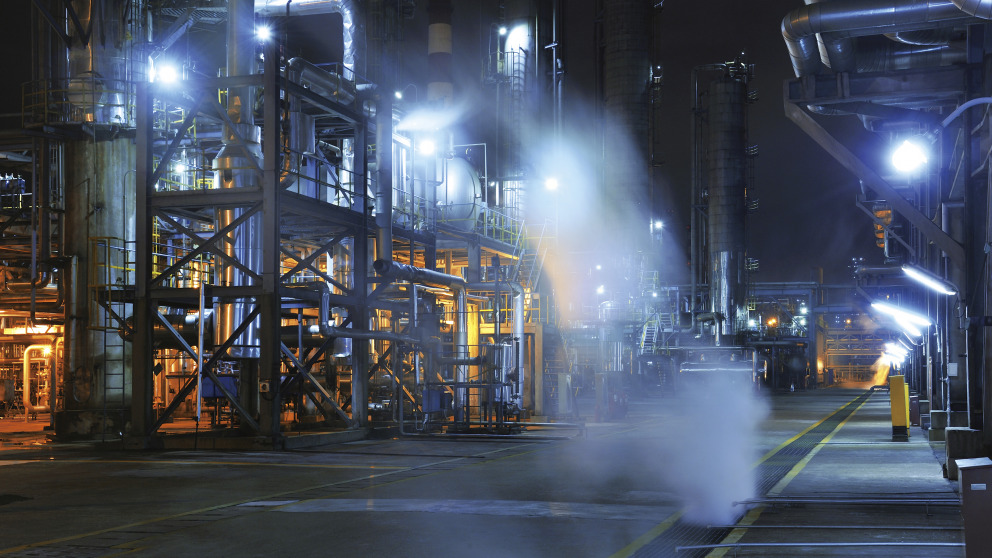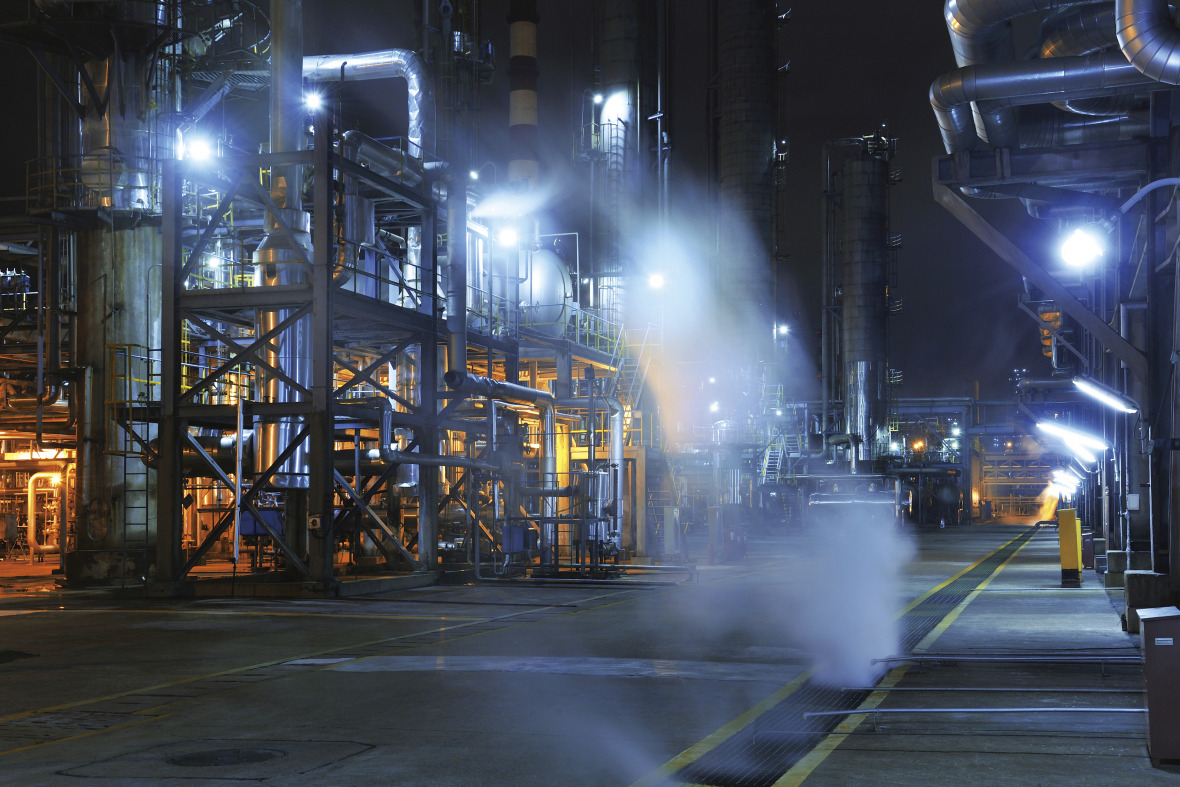Headline:
How Climate Friendly is Natural Gas? Researchers Discuss the Impact of Fugitive Emissions

Natural gas occupies a prominent place in the debate about a low-carbon future. It is generally regarded as a climate friendly option in comparison with other fossil fuels. In terms of carbon dioxide emissions, this view is justified: natural gas emits only about half the amount of the greenhouse gas that coal does during combustion. But methane leakages occur at many stages of the natural gas supply chain, from well drilling and production to processing, transportation and distribution. When we take fugitive emissions into account, can we still consider natural-gas-based energy and transport a climate friendly option? A workshop at the IASS on 11 February 2016 explored this question.
Alexander Gusev of the IASS stressed that there are large discrepancies in the available data on methane leaks. In the United States, official data had to be revised after independent measurements contradicted it. Fugitive emissions have drawn a lot of attention there in recent years, while the topic is still largely neglected in Europe, despite the existence of several working groups and initiatives. Gusev pointed out that the lack of reliable data makes it difficult to evaluate the environmental impact of gas production.

Emissions can be reduced by using better technologies, but, naturally enough, they also depend on production volumes. Thierry Bros from the French bank Société Générale discussed the role of gas in Europe’s future energy mix. Referring to a prediction made by the International Energy Agency (IEA) in 2011, he said: “The Golden Age of Gas didn’t materialise in Europe. It didn’t happen, and I don’t think it’s going to happen.” He cited three reasons for this: firstly, gas prices didn’t go down as much as other energy commodity prices. Secondly, European countries are experiencing a drop in primary energy demand – a consequence of political measures under the European Union climate and energy package. And thirdly, on top of the structural decline, tense EU-Russia relations will not favour gas. “If the 2006–2015 linear trend continues, there will be no more gas demand in Europe in 2050,” said Bros, adding that the decline in conventional demand could be mitigated by using gas as a transportation fuel.
According to data presented by Alexey Mozgovoy of the Gas- und Wärmeinstitut Essen, the number of natural gas vehicles has risen to 18 million worldwide, most of them in Iran (3.5 million), Pakistan (2.8 million), and Argentina (2.3 million). However, the scarcity of filling stations is a problem in many countries, including Germany. Gas vehicles have many economic, social and environmental benefits according to Mozgovoy, but we still need to improve the efficiency of their engines and reduce methane slip. Markus Klingbeil of the IEA said that technologies for reducing methane emissions are available, but action is required now to ensure that emissions peak soon and then begin to fall rapidly. He also pointed out that, in the absence of new and more comprehensive data, the international community should focus on outlining best practices for policy recommendations.
The lack of a common, reliable methodology for estimating methane leaks is a major obstacle to taking concrete steps to mitigate these emissions. Gert Müller-Syring, a researcher with the DBI and the European Gas Research Group (GERG), argued that the huge variety of national methodologies prevents consistent and transparent data reporting across Europe. Existing methods vary in their complexity, depending in particular on the level of detail of the activity data and the emission actors they use (default or country-specific factors). Each approach can have its specific advantages and disadvantages, and each strikes a different balance between accuracy and cost/efforts. One of GERG’s projects seeks precisely to assess the various approaches and explores possible combinations with a view to outlining a common European methodology.
The issue of methane emissions in general and methane leakage in particular has been on the agenda of Russia’s main natural gas producer (Gazprom) for a long time, according to Grigory Yulkin from Gazprom’s Laboratory of Environmental Protection and Resource Saving. The first joint projects on methane leakage assessment in Russia were undertaken in 1997, and since then cooperations have been initiated with different international partners, including the Wuppertal Institute, the US EPA, and the Japanese Sojitz Corporation.
Leakage rates from the natural gas system in Russia are estimated to amount to 0.1% of production volumes according to Gazprom, although discrepancies exist when compared to other estimates, such as Russia’s report to UNFCCC, where leakage rates are significantly higher. Yet Russia’s potential to reduce methane emissions is sizeable, given the country’s significant total annual production of natural gas and extensive pipeline network. According to Meredydd Evans from the Pacific Northwest Laboratory in the USA, Russia is one of only a few countries that are developing legislation specifically targeted at methane emissions. Environmental fines, public sector energy-saving targets, and requirements to use the best available technologies are just some of the direct measures that have been introduced in Russia. However, various barriers to methane mitigation still remain. Among the most important ones are low domestic natural gas prices, taxation, market access, and fear of additional regulation.
All the workshop participants agreed that the issue of methane mitigation is an important topic that warrants further investigation and should remain on the agenda of every country. Indeed, effective actions to mitigate methane emissions could help to curb climate change in the short term. Conversely, neglecting methane leakage from oil and gas systems could have major negative impacts on the climate, since methane is a much more potent greenhouse gas than carbon dioxide, especially in the short term (84 times the GWP of CO2 in a 20-years time horizon). Participants therefore underlined that further international cooperation on this topic is crucial, particularly with respect to sharing data and finding common methodologies in the energy and natural gas sector.
The IASS research group “Future of gas in energy transitions” is keen to strengthen collaboration with the workshop partners and enlarge the current platform in order to investigate this topic more thoroughly. In future the group will focus on improving the quality of data on emission rates and activity in countries such as Germany and Russia, identifying knowledge gaps, and analysing different policies in the European context. Joint efforts directed at tackling methane emissions in the natural gas supply chain might help to decrease uncertainty and thus contribute to the debate on the future of gas, with a focus on the German energy transition process. More insights into this new IASS research area will be published soon.
